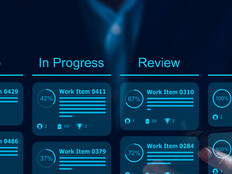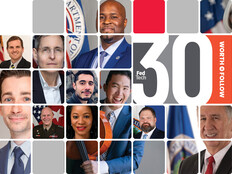When There Are No Barriers to Technology, How Can the Government Innovate?
Is this the question that will define the next era of government?
President Obama: There are fewer & fewer technical restraints on what we can do. That forces us to ask questions about what we should do.
— Alex Howard (@digiphile) January 17, 2014
Take this one step further. The government is already being forced to think about not using technology, when there is so much potential for improving workflows and budgets. Of course, in terms of cost savings and citizen services, intelligence and defense agencies face challenges that are unique to their missions, but every agency can benefit from better technology in the workplace.
Maximizing technology without overstepping the boundaries of privacy is proving to be harder than we thought. If government is to be trusted with technology, there are a few things that should guide its strategy.
Government should be open.
Open data is low-hanging fruit for the federal government. It’s true that there has been a lot of progress in this area so far. Data.gov, the government’s online home for open data, hosts more than 85,000 data sets on everything from energy and agriculture to education and public safety.
http://t.co/FFhOQRgZZT could help agencies save $ by revealing duplicative data gathering via maps http://t.co/gB109P4t1P @govexec #opendata
— Data.Gov (@usdatagov) December 10, 2013
The data is quite useful, and many developers are putting the data to good use. FarmLogs, for example, helps farmers plan their crops by using open data, “including weather and GPS data from NOAA and pricing and news from the Chicago Mercantile Exchange.”
This is a great start because the data can be readily applied to existing problems. The new challenge for government will be to apply this open mindset to bigger challenges, such as defense, intelligence and security.
Government should be social.
Government hasn’t always been recognized for its social prowess, but that is starting to change. The Interior Department is almost single-handedly proving that social media can be a workhorse for agencies. Justin Herman, the social media program manager in the Office of Citizen Services and Innovative Technologies, was recently interviewed by Federal News Radio. Listen here to learn exactly how agencies can enhance missions with social media.
Government should be progressive.
When new technology arrives, agencies are rarely among the early adopters. There is good reason for this. Legacy technology often holds agencies back, budgets are usually tight, contracts haven’t expired and, without proper security testing, most technology just isn’t ready for agencywide adoption.
But wouldn’t it be exciting to know that your tax dollars are future-proofing government offices so that these problems won’t crop up again in five years? It’s true that some agencies are making their way to the cloud, which will solve a number of issues related to telework, BYOD, mobility and software management. Will the government ever emerge as a leader in this space, willing to take risks that can ultimately improve citizen services and move missions forward? Let us know in the Comments.








